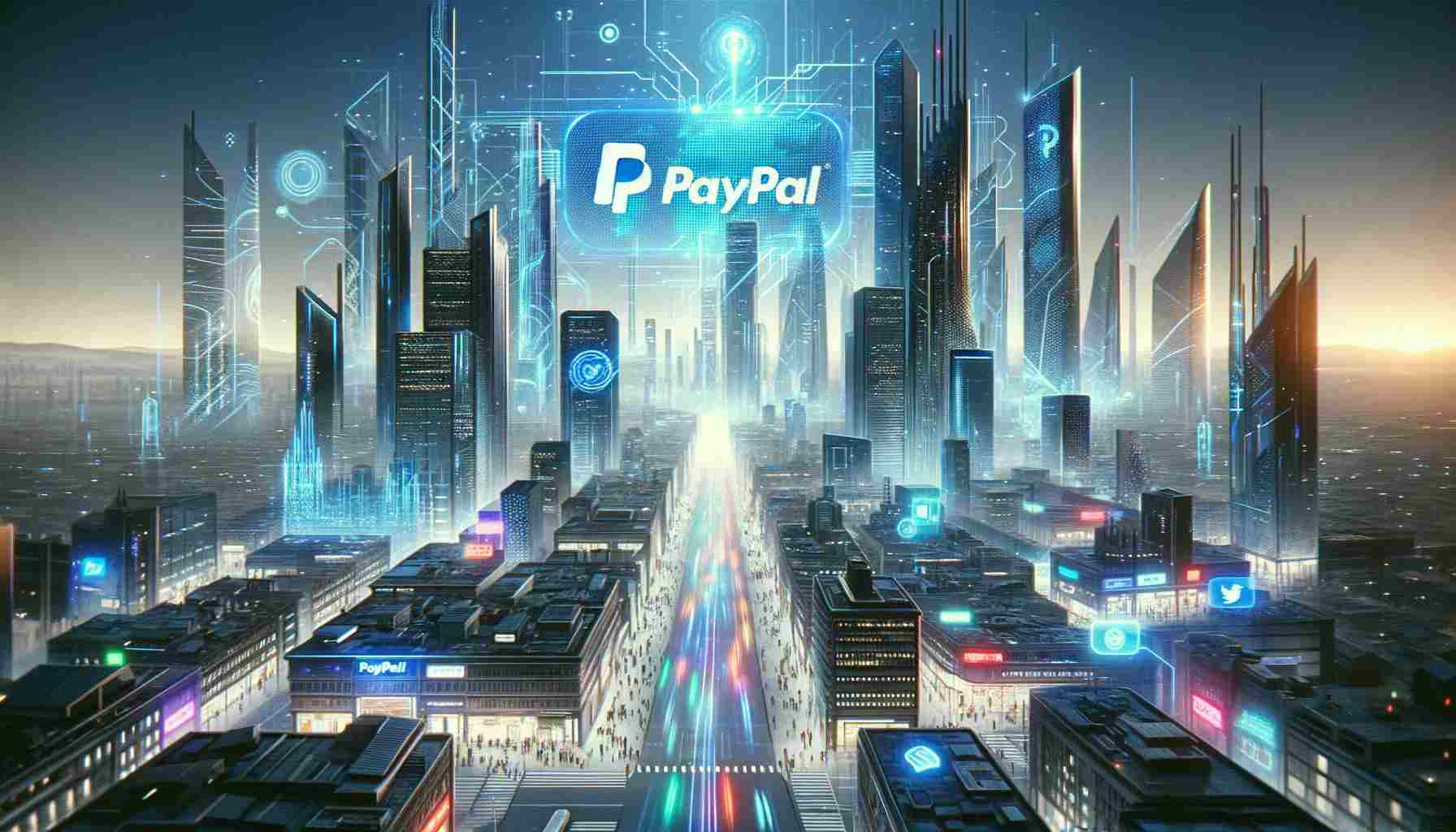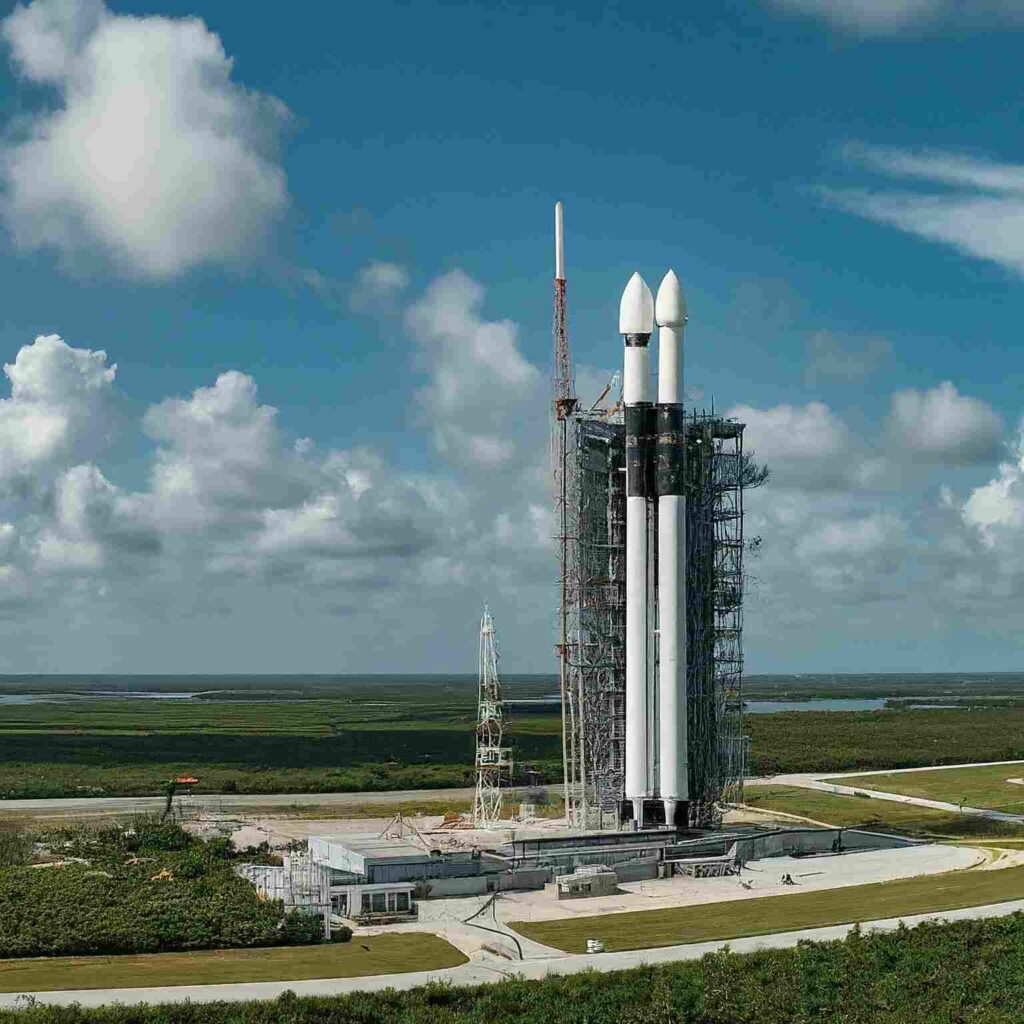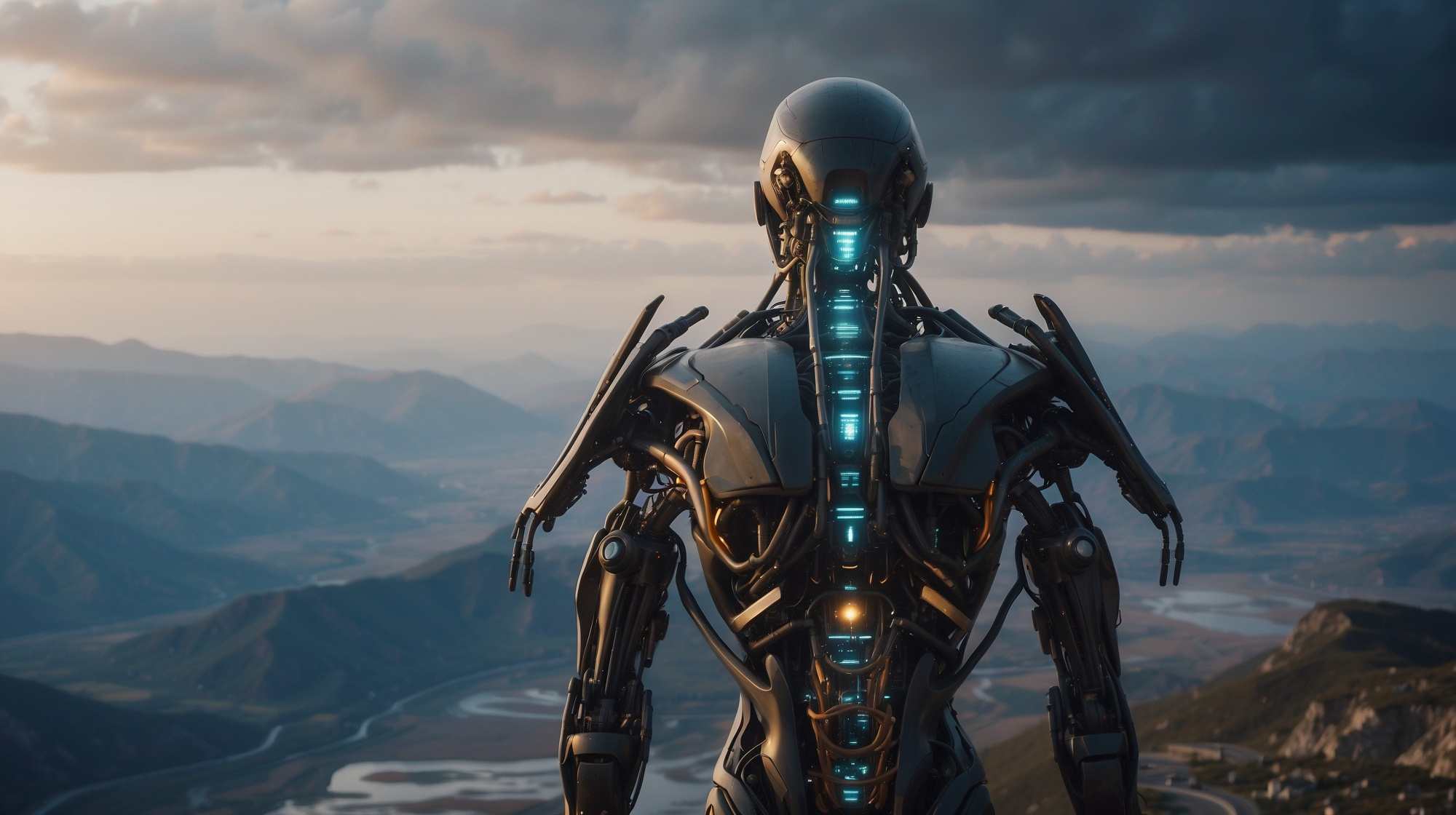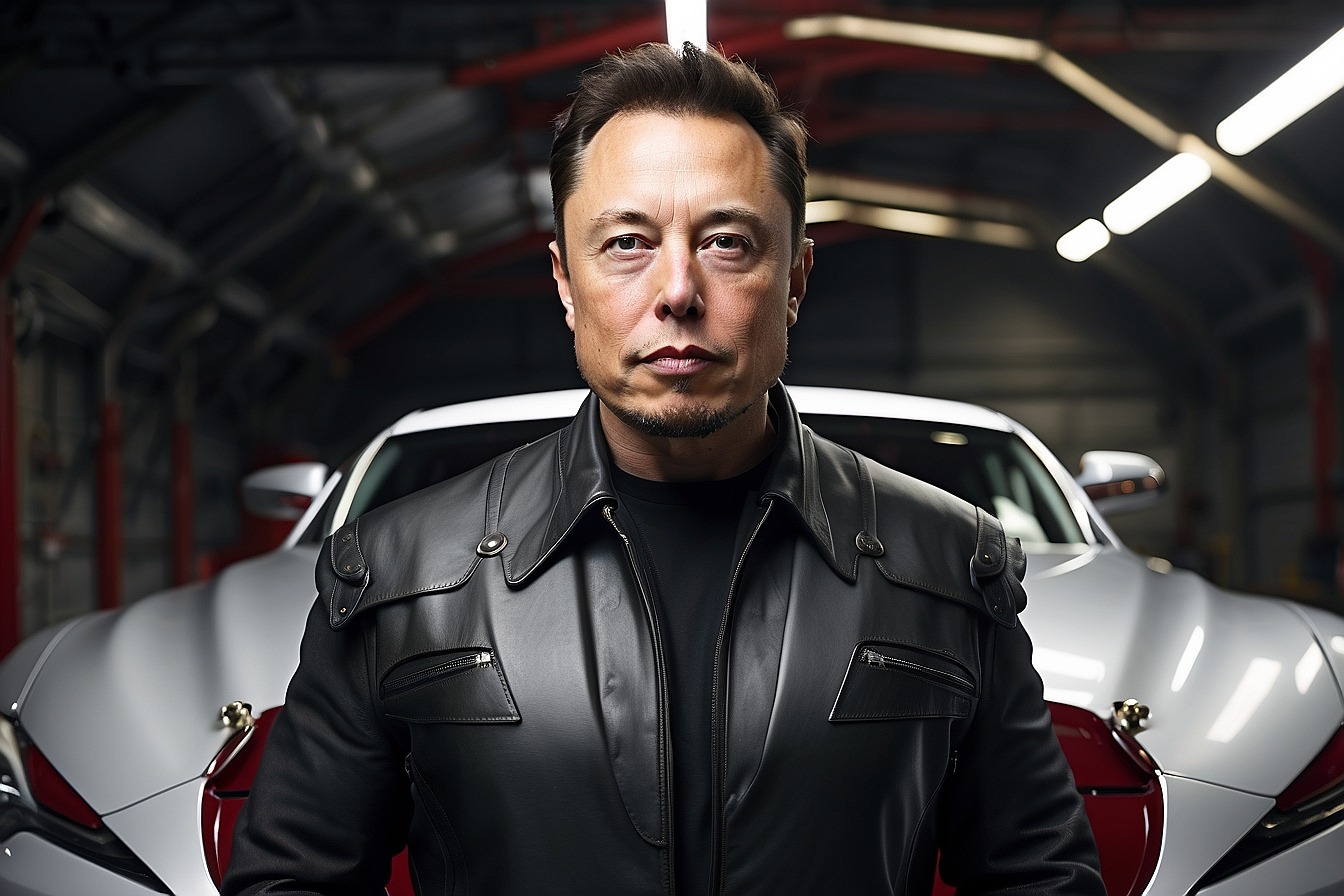Elon Musk’s Journey
Early Life
-
Childhood and Education
-
Early Interests and Projects
Entrepreneurial Ventures
-
Zip2 Corporation
-
PayPal and X.com
-
SpaceX
-
Tesla Motors
-
SolarCity and Renewable Energy
-
Neuralink and BCI
-
The Boring Company
Challenges and Controversies
-
Leadership Style
-
Legal and Social Media Controversies
Vision for the Future
-
Mars Colonization
-
Sustainable Energy
-
Neuralink and Human Enhancement
Personal Life and Philosophy
-
Work Ethic
-
Philosophical Beliefs
Legacy and Impact
-
On Technology and Innovation
-
On Entrepreneurship
Conclusion
Elon Musk’s Journey

Elon Musk’s journey reads like a tale of ambition, innovation, and sheer perseverance. Born in South Africa in 1971, Musk’s curiosity about the world around him was evident from an early age. By 12, he had already sold his first piece of software, a game called Blastar, hinting at the remarkable path that lay ahead.
Musk’s quest for knowledge took him from South Africa to the United States, where he pursued higher education. But the classroom couldn’t contain his entrepreneurial spirit for long. In the mid-90s, he launched Zip2, a company that provided online city guides.
The success of Zip2 was just the beginning. Musk’s vision led him to create X.com, which later became PayPal, revolutionizing the way we think about online payments.
Yet Musk’s ambitions soared higher than financial services. He looked to the stars and founded SpaceX with the dream of making space travel affordable and ultimately colonizing Mars. Despite initial setbacks, SpaceX has made history with its successful launches and is now a key player in space exploration.
Elon Musk’s journey is not just a story of technological innovation; it’s a testament to the power of dreaming big and the relentless pursuit of those dreams. From software developer to space pioneer, Musk has not only changed industries but also inspired millions to imagine a future bound only by the limits of our imagination.
Early Life
Elon Musk’s early life laid the foundation for a future filled with innovation and exploration. Born on June 28, 1971, in Pretoria, South Africa, Musk was the eldest of three children in a family that fostered curiosity and a strong work ethic.
His mother, Maye Musk, was a Canadian model and dietitian, and his father, Errol Musk, was a South African electromechanical engineer, pilot, and sailor. This blend of backgrounds and interests in the Musk household undoubtedly contributed to Elon’s multifaceted view of the world.
Childhood and Education
From an early age, Musk demonstrated an insatiable appetite for knowledge. He was an avid reader, delving into a wide range of subjects, from science fiction to non-fiction, with a particular interest in books about inventions and the workings of the universe.
His early education took place in South Africa, where he attended Waterkloof House Preparatory School and later Pretoria Boys High School. Despite facing bullying and social isolation, Musk’s childhood was characterized by a relentless pursuit of knowledge and a growing interest in computers and technology.
At the age of 17, seeking greater opportunities and aiming to avoid mandatory service in the South African military, Musk moved to Canada.
He attended Queen’s University in Kingston, Ontario, for two years before transferring to the University of Pennsylvania in the United States, where he earned two bachelor’s degrees: one in physics and another in economics. This dual focus on the sciences and business would later become a hallmark of Musk’s career, combining technological innovation with entrepreneurial ambition.
Early Interests and Projects
Musk’s fascination with technology became evident when he taught himself computer programming at a young age. By the time he was 12, he had already created and sold a simple video game called Blastar, signaling his early interest in software development and entrepreneurship.
This project was more than just a childhood hobby; it was a glimpse into Musk’s future, showcasing his ability to identify opportunities and act on them decisively.
These formative years were crucial in shaping Elon Musk’s worldview. His diverse interests, from reading and programming to his education in both the arts and sciences, laid the groundwork for his later ventures.
Musk’s early life is a testament to the impact that a curious mind and a broad education can have on an individual’s trajectory, foreshadowing the remarkable contributions he would go on to make in technology, space, and sustainable energy.
Entrepreneurial Ventures
Elon Musk’s entrepreneurial ventures paint a picture of a visionary determined to redefine the future of humanity through technology and innovation. Each company he has founded or led reflects his unyielding drive to address some of the world’s most pressing challenges.
Zip2 Corporation
Founded in 1995 by Elon Musk, his brother Kimbal, and Greg Kouri, Zip2 Corporation was a pioneering venture that provided business directories and maps for newspapers online. The company developed software that enabled users to view maps and get directions, integrating business listings with these maps for the first time.
Zip2 was a precursor to the modern GPS navigation and local search functionalities we use today. It proved to be a successful venture, and in 1999, Compaq acquired Zip2 for approximately $307 million. This sale provided Musk with the capital to fund his future ventures, marking his first significant success in the tech industry.
PayPal and X.com

In 1999, Elon Musk founded X.com, an online payment company that was one of the first federally insured online banks. With its innovative approach to online banking and payments, X.com quickly gained attention and users.
A year later, X.com was renamed PayPal after a merger with Confinity, a company that had a money-transfer service called PayPal. Under Musk’s guidance, PayPal revolutionized the way payments were made online, simplifying transactions for millions of users. In 2002, eBay acquired PayPal for $1.5 billion, further establishing Musk’s reputation as a successful entrepreneur.
SpaceX

Space Exploration Technologies Corp., or SpaceX, was founded by Elon Musk in 2002 with the ambitious goal of reducing space travel costs to enable Mars colonization. Musk was driven by his vision of making life multi-planetary.
Despite several early failures, SpaceX’s perseverance paid off with the successful launch of the Falcon 1 in 2008, the first privately funded liquid-fueled rocket to reach orbit. Since then, SpaceX has achieved significant milestones, including the development of the Falcon Heavy, the Dragon spacecraft, and the Starship. SpaceX’s advancements have not only reduced space travel costs but also reignited global interest in space exploration.
Tesla Motors
Tesla Motors, now Tesla Inc., was co-founded by Elon Musk in 2004, though he joined the company after its inception and quickly became its driving force. Under Musk’s leadership, Tesla has become synonymous with electric vehicles (EVs), pushing the automotive industry towards sustainable energy.
Tesla’s Roadster, Model S, Model X, Model 3, and Model Y have set new standards for electric vehicles in performance, safety, and sustainability. Musk’s vision for Tesla extends beyond cars, aiming to accelerate the world’s transition to sustainable energy through electric vehicles and renewable energy products.
SolarCity and Renewable Energy
Elon Musk co-founded SolarCity in 2006 with his cousins Lyndon and Peter Rive. The company’s mission was to reduce global dependence on fossil fuels by providing affordable, renewable energy solutions to homeowners, businesses, and government entities. SolarCity became the largest provider of solar power systems in the United States, significantly contributing to the growth of the solar energy sector.
In 2016, Tesla acquired SolarCity, integrating its solar energy products with Tesla’s energy storage solutions, further advancing Musk’s vision for a sustainable energy future.
Neuralink and Brain-Computer Interfaces (BCI)

Neuralink, founded by Elon Musk in 2016, is a neurotechnology company focused on developing brain-computer interfaces (BCIs). Neuralink’s ambitious mission is to enable humans to communicate directly with computers and enhance cognitive abilities through advanced neural devices.
The company aims to address neurological conditions and improve the quality of life for individuals with disabilities.
Neuralink’s work represents a significant step forward in the field of neurotechnology, potentially revolutionizing how we interact with technology and each other.
The Boring Company
The Boring Company was founded by Elon Musk in 2016 to address traffic congestion through the development of an extensive network of underground tunnels. The company aims to revolutionize urban transportation by creating tunnels that facilitate the rapid transit of vehicles and high-speed trains.
The Boring Company’s vision includes the Loop and Hyperloop systems, which promise to significantly reduce travel time in congested cities. Through innovative tunneling technology and ambitious projects, The Boring Company seeks to offer a new solution to the age-old problem of urban traffic congestion.
Challenges and Controversies
Elon Musk, a figure synonymous with groundbreaking innovation and visionary projects, has faced his fair share of challenges and controversies. His journey, marked by ambitious ventures into space exploration, electric vehicles, and renewable energy, has not been without its hurdles.
One of the most talked-about aspects of Musk’s ventures is the high-pressure environment reported within his companies. Employees often describe a culture of relentless work ethic and demanding expectations, mirroring Musk’s personal dedication and intense work pace.
This culture, while fostering innovation and achieving technological milestones, has also led to criticism regarding work-life balance and employee well-being.
Another point of contention is Musk’s approach to dealing with critics and the media. His confrontations and disputes with journalists and analysts who question his companies’ practices or sustainability have sparked debates about corporate governance and the balance between visionary leadership and accountability.
Furthermore, the ambitious timelines Musk sets for his projects, from Tesla’s production targets to SpaceX’s Mars missions, often face skepticism and scrutiny regarding their feasibility and safety, highlighting the challenges of pioneering uncharted technological territories.
Leadership Style
Elon Musk’s leadership style is distinctive and polarizing, characterized by his intense commitment, visionary goals, and hands-on approach. Musk is known for setting incredibly high standards, not only for his employees but for himself as well, often working long hours and involving himself deeply in the details of his companies’ projects.
This approach has led to remarkable successes, such as the launch of the first privately funded spacecraft to reach the International Space Station by SpaceX and the production of the first mass-market electric car by Tesla.
However, Musk’s leadership style has also been a source of controversy. His direct and sometimes abrasive communication, particularly on social media platforms, along with his demanding expectations, has been criticized for creating a high-pressure work environment.
Critics argue that this can lead to burnout and high turnover among employees. Despite this, many admire Musk for his ability to inspire and lead teams toward achieving seemingly impossible goals, highlighting the complex nature of visionary leadership.
Legal and Social Media Controversies
Elon Musk’s use of social media, especially Twitter, has been a double-edged sword, serving both as a powerful tool for direct communication and a source of legal and public relations challenges. Musk’s tweets have moved markets, influenced public opinion, and sometimes led to significant legal repercussions.
For example, his tweet about taking Tesla private at $420 per share led to a lawsuit by the SEC, resulting in a settlement that included stepping down as Tesla’s chairman and a fine for both Musk and Tesla.
Furthermore, Musk’s outspoken nature on social media has sparked controversies, ranging from public disputes with critics and journalists to comments that have been perceived as insensitive or controversial. These incidents have raised questions about the role of corporate leaders on social media, the impact of their statements on their companies, and the boundaries of free speech versus responsible communication.
Despite these challenges, Musk’s social media presence remains a vital part of his public persona and a tool for sharing his vision directly with the world. It exemplifies the complexities of navigating the digital age as a high-profile leader, where the power to instantly communicate with millions comes with significant responsibilities and potential pitfalls.
Vision for the Future
Mars Colonization

Elon Musk’s vision for Mars colonization is not just a dream; it’s a meticulously planned mission to extend humanity’s reach. Musk envisions a future where humans live on multiple planets, with Mars as a primary target for colonization. This ambitious goal aims to ensure the long-term survival of human civilization by making us a multi-planetary species.
SpaceX, Musk’s aerospace manufacturer, is at the forefront of this endeavor, developing the Starship spacecraft designed to carry humans and cargo to Mars and beyond. Musk’s plan includes building a sustainable city on Mars that can support a self-sufficient population. This vision involves overcoming monumental challenges, including transporting large numbers of people across space, making Mars habitable, and ensuring the colony’s sustainability.
Despite the hurdles, Musk’s timeline for reaching Mars is aggressive, with hopes of sending the first human missions to the Red Planet within this decade. The idea of Mars colonization pushes the boundaries of human exploration and represents a leap forward in our quest for knowledge and survival.
Sustainable Energy
The push towards sustainable energy is a cornerstone of Elon Musk’s vision for the future. Musk believes that transitioning to renewable energy sources is critical for combating climate change and ensuring the planet’s long-term viability. Through Tesla, Musk has revolutionized the automotive industry by making electric vehicles (EVs) popular and desirable.
Tesla’s success has spurred a global shift towards EVs, with major automakers committing to electrifying their fleets. Beyond vehicles, Musk’s commitment to sustainability extends to energy generation and storage. SolarCity, a Tesla subsidiary, aims to make solar energy more accessible to homeowners and businesses.
Tesla’s energy storage solutions, like the Powerwall and Powerpack, enable the storage of renewable energy, making it possible to use solar and wind power even when the sun isn’t shining or the wind isn’t blowing. Musk’s vision encompasses a world powered by clean, renewable energy, significantly reducing our reliance on fossil fuels and mitigating the impacts of climate change.
Neuralink and Human Enhancement
Neuralink, founded by Elon Musk, represents a bold step toward the future of human enhancement and brain-computer interfaces (BCIs). Musk’s vision with Neuralink is twofold: to address severe brain injuries and disorders through advanced medical devices and to enable symbiosis between humans and artificial intelligence (AI). Neuralink’s technology involves ultra-thin threads that can be inserted into the brain to detect neural activity.
This could lead to breakthroughs in treating conditions like paralysis, Alzheimer’s, and traumatic brain injuries by allowing patients to control devices or communicate through thought alone. Beyond medical applications, Musk envisions a future where BCIs enhance human cognitive abilities, enabling people to keep pace with AI advancements.
This could revolutionize how we interact with technology, making the exchange of information instant and expanding human intelligence. While Neuralink’s goals are ambitious and fraught with technical and ethical challenges, Musk’s track record of turning visionary ideas into reality suggests that Neuralink could redefine what it means to be human in the 21st century.
Personal Life and Philosophy
Elon Musk’s personal life is as complex and fascinating as his professional endeavors. Known for his intense work ethic, Musk often blends his personal and professional lives, believing deeply in his missions to enhance human life and secure our species’ future.
Musk, a father to multiple children, has shared insights into his parenting style, emphasizing the importance of critical thinking and a questioning mindset. Despite his wealth, he maintains a relatively modest lifestyle, focusing on his companies and philanthropic efforts rather than lavish expenditures.
Musk’s philosophy is deeply intertwined with his work. He views his projects not merely as business ventures but as essential steps towards solving some of humanity’s most pressing issues, such as sustainable energy and multi-planetary living.
This philosophy extends to his views on artificial intelligence, where he advocates for proactive regulation to prevent potential risks. Musk’s approach to life and business is fundamentally driven by a desire to leave a lasting, positive impact on the world, reflecting a blend of pragmatic foresight and a profound sense of responsibility toward the future.
Work Ethic
Elon Musk’s work ethic is legendary. Known for his rigorous schedule, Musk often works up to 100 hours a week, splitting his time among his various companies. He is not only the CEO and lead designer at SpaceX but also deeply involved in the day-to-day operations of Tesla, Neuralink, and The Boring Company.
Musk’s approach to work is characterized by his hands-on involvement in projects, from sleeping on the factory floor to ensure production targets are met to participating in the engineering discussions of his companies.
This relentless work ethic stems from Musk’s belief in the importance of his company’s missions. He sees each venture not just as a business but as a crucial step toward a better future for humanity. His ability to focus intensely on his goals, coupled with a willingness to take significant risks, has been key to overcoming the numerous challenges his companies have faced. Musk’s work ethic is a reflection of his commitment to his vision, demonstrating that he is willing to put in the effort required to achieve seemingly impossible goals.
Philosophical Beliefs
Elon Musk’s philosophical beliefs are shaped by his vision for humanity’s future, combining a technologist’s optimism with a pragmatist’s attention to the challenges ahead. He is driven by a deep-seated belief in the potential of technology to solve global problems, from energy sustainability to human health and beyond. Musk’s interest in space exploration, electric vehicles, and renewable energy is rooted in his concern for the long-term survival and flourishing of humanity.
Central to Musk’s philosophy is the conviction that humanity must become a multi-planetary species to safeguard its future. This belief underpins his work with SpaceX and his ambition to colonize Mars. Musk also harbors concerns about the potential risks posed by artificial intelligence, advocating for regulatory oversight to ensure AI benefits humanity without posing existential risks.
Moreover, Musk’s commitment to renewable energy and electric vehicles reflects his concern for the planet’s ecological health and a desire to mitigate the impacts of climate change. His ventures are not just business endeavors but are imbued with a sense of purpose: to propel humanity toward a more sustainable, adventurous, and hopeful future.
Musk’s philosophical beliefs, therefore, are not abstract concepts but are actively being pursued through his work, shaping the direction of technological innovation and societal progress.
Legacy and Impact
Elon Musk’s legacy is as vast as the ventures he has embarked upon. He has become a symbol of the relentless pursuit of innovation, altering the trajectory of multiple industries. Musk’s work has not only pushed technological boundaries but also inspired a global conversation about the future of humanity.
His endeavors in space exploration with SpaceX have reignited a passion for the cosmos, making the dream of Mars colonization seem within reach. Through Tesla, Musk has accelerated the transition to sustainable energy, making electric vehicles desirable and mainstream, thereby challenging the automotive industry to evolve.
His impact extends beyond the products his companies create; it lies in the shift towards thinking bigger and bolder about solutions to global challenges. Musk’s legacy is characterized by a relentless pursuit of a future where technology and sustainability intersect to enhance human life on Earth and beyond.
On Technology and Innovation
Elon Musk’s impact on technology and innovation is unparalleled. He has a unique ability to foresee and shape the future, turning seemingly far-fetched ideas into reality. Through SpaceX, he has revolutionized space travel, reducing costs and increasing accessibility, with the ultimate aim of making life multi-planetary.
His work with Tesla has not only popularized electric vehicles but also spurred advancements in battery technology and renewable energy solutions. Neuralink’s exploration of brain-computer interfaces could redefine human cognition and communication. Musk’s ventures often start as bold visions that seem impossible by today’s standards, yet through innovation and determination, they often become integral to our lives.
His influence encourages a culture of innovation that challenges the status quo, pushing humanity toward a more advanced and sustainable future.
On Entrepreneurship
Elon Musk embodies the essence of entrepreneurship. His journey is a masterclass in identifying needs within society and boldly creating solutions to address them. Unlike traditional entrepreneurs, Musk’s ventures serve a dual purpose: solving immediate problems while paving the way for a better future. He has demonstrated time and again that with enough passion, perseverance, and willingness to take risks, even the most ambitious dreams can be realized.
Musk’s approach to entrepreneurship goes beyond mere business success; it’s about creating a positive impact on the world. He challenges aspiring entrepreneurs to think big, not just in terms of profit but in terms of potential contributions to humanity. Musk’s story encourages a new generation of entrepreneurs to tackle global challenges, reminding us that entrepreneurship is a powerful tool for change.
Through his example, Musk has redefined what it means to be an entrepreneur in the 21st century, inspiring others to follow in his footsteps and innovate for the greater good.
Conclusion
Imagine selling a video game at 12, then dreaming of colonizing Mars! That’s Elon Musk, in a nutshell. His story is like a sci-fi movie, but it’s all real.
His journey is a roadmap for dreamers.
- Boundless curiosity: From a young age, Elon loved exploring ideas and pushing boundaries.
- Unwavering determination: He didn’t give up, even when faced with setbacks (like rockets exploding!).
- Pioneering spirit: He dared to dream big and tackle challenges others thought were impossible.
His ventures changed the world.
- SpaceX made space exploration cheaper and more accessible, opening the door to a future on Mars.
- Tesla pioneered electric vehicles, fighting for a cleaner and more sustainable future.
- PayPal revolutionized online payments, making it easier and safer to send money.
The message is clear:
The future belongs to those who dare to dream and work hard to make those dreams a reality.
Elon Musk inspires us to:
- Think big. Don’t be afraid to dream beyond what seems possible today.
- Never give up. Challenges are inevitable, but persistence pays off.
- Embrace innovation. See problems as opportunities to create a better future.
Remember, Elon Musk’s story isn’t just about him. It’s about your potential to make a difference, too. So, what will you create?


